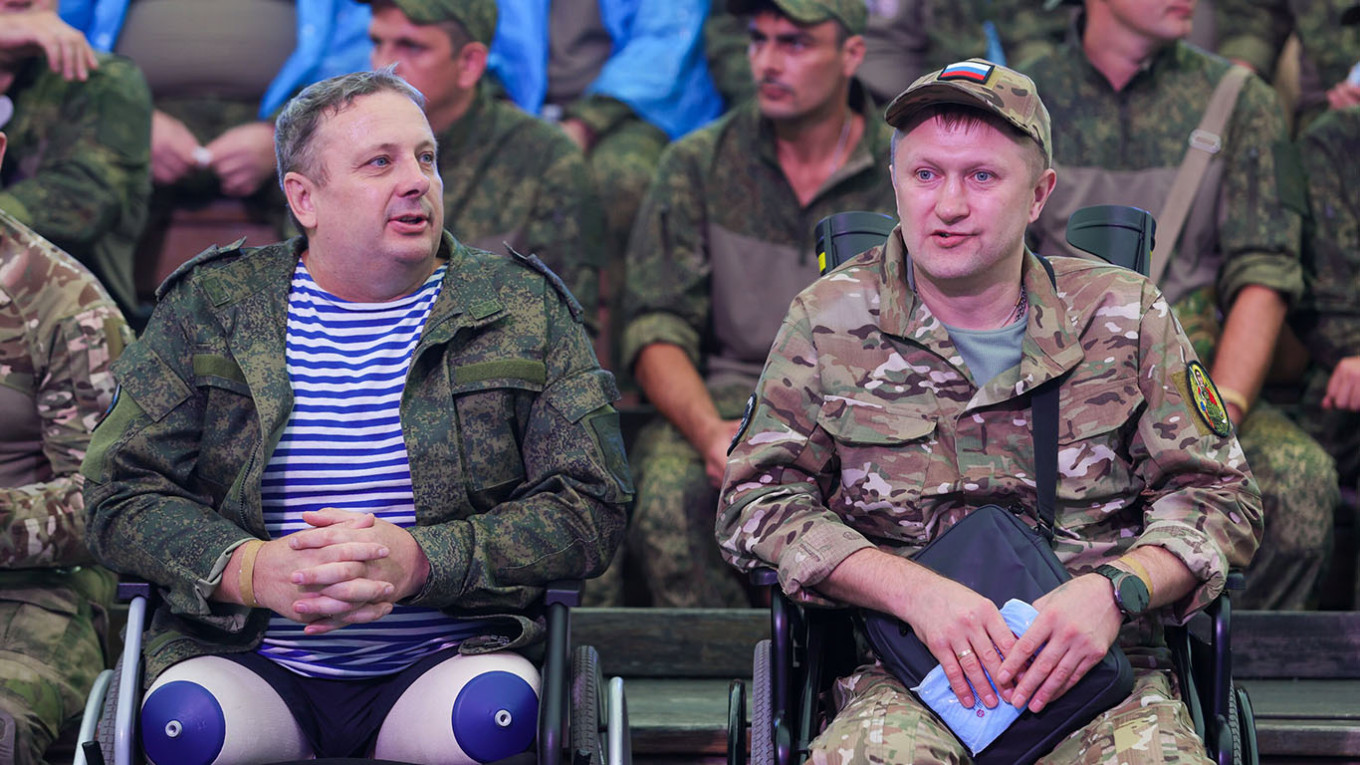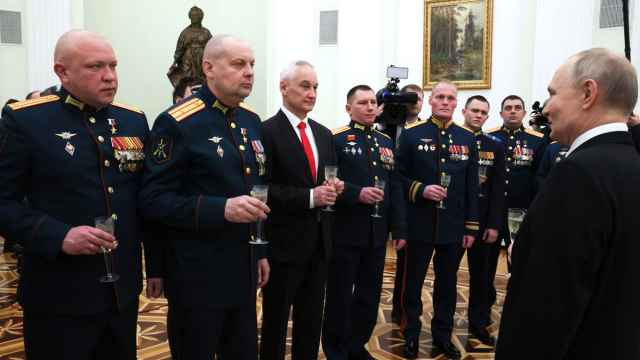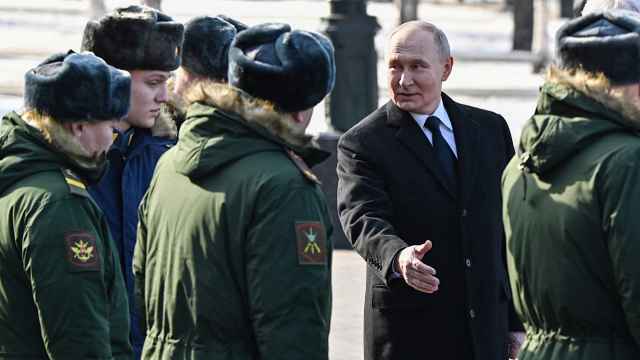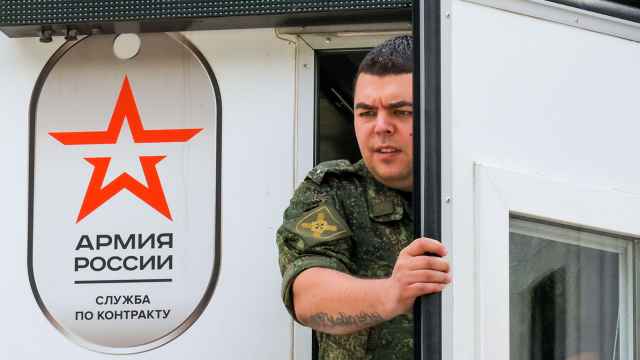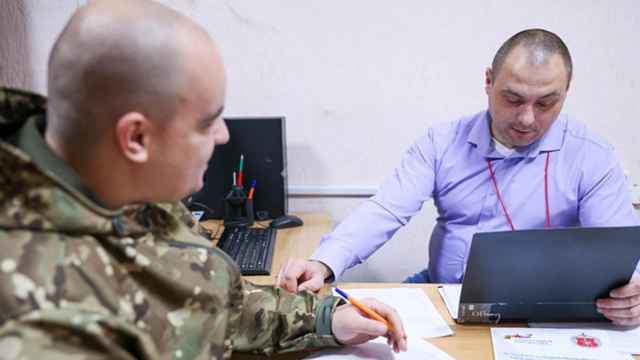When President Vladimir Putin praised veterans of the war in Ukraine this year as “the elite who defend the Motherland,” he cast them as a generation of men ready to lead Russia into the future.
“It’s not frightening to hand the country over to people like this,” he said.
Yet the return of Russian soldiers from Ukraine is already straining families and communities, with violent crimes drawing headlines and neighbors on edge. With some 700,000 men still fighting, the country now faces the far larger test of what will happen when they all come home.
“War veterans often find it difficult to integrate back into civilian society even with psychological support and rehabilitation programs,” Dr. Jenny Mathers, senior lecturer in international politics at Aberystwyth University, told The Moscow Times.
“The absence of such support for many Russian war veterans, combined with the emphasis in Russian society on men displaying certain types of masculine behavior — such as toughness, concealing softer emotions such as sorrow or fear — will make it even harder,” said Mathers, whose research focuses on Russia’s war in Ukraine.
Cases of returning soldiers committing crimes have been steadily growing.
In one recent example, Alexei Marchukov, a soldier on leave from the front, was convicted of killing his wife on their wedding night in the Tyumen region. He was sentenced to 12.5 years in a maximum-security penal colony.
Court records show that Marchukov, intoxicated after the wedding celebration, fatally stabbed his wife after an argument. His sister testified that he had previously signed up for the army to avoid prison after repeated arrests for public disorder.
After the verdict was read, he reportedly told the court he hoped to return to the front, a reminder of the revolving door between Russia’s battlefields and its prisons.
Russia’s convict recruitment efforts began under the Wagner mercenary group in mid-2022, with prisoners offered a pardon in exchange for six months of military service. The Defense Ministry took over the practice in early 2023.
Analysts say the policy has planted the seeds for future crimes.
The war “is already affecting the country’s criminal situation and will inevitably continue to influence crime in the future,” said Villy Maslov, a researcher at the Ural Law Institute of the Interior Ministry, who analyzed the war’s impact on crime in Russia and statistics on convictions for 2019-2023.
He argued that it is “only a matter of time” before released convicts commit another crime and that their reintegration into society is unlikely without state support.
There are currently no mandatory psychological or mental health assessments for soldiers returning from the war.
Experts warn that in some cases, only a short time passed between sentencing and deployment to the front — raising concerns that once back, these fighters may turn their anger on those involved in their prosecution.
The Foundation for the Support of Victims of Crime in March called for ending the practice of pardoning men convicted of serious crimes in exchange for fighting in Ukraine.
And in 2024, Nina Ostanina, chair of the State Duma’s Family Protection Committee, proposed placing ex-convicts under permanent supervision upon their return from the war.
However, neither proposal was implemented.
Like in Marchukov’s case, Mathers said “there is a well-established connection between soldiers returning from deployment to conflict zones and an increase in domestic violence in their households.”
“Several studies have been done in the United States, for example about American soldiers returning from deployment to the post-9/11 wars in Afghanistan and Iraq, but there is also evidence from other countries to support the theory that the families of soldiers coming home from war are at increased risk of abuse from their husbands and fathers,” she told The Moscow Times.
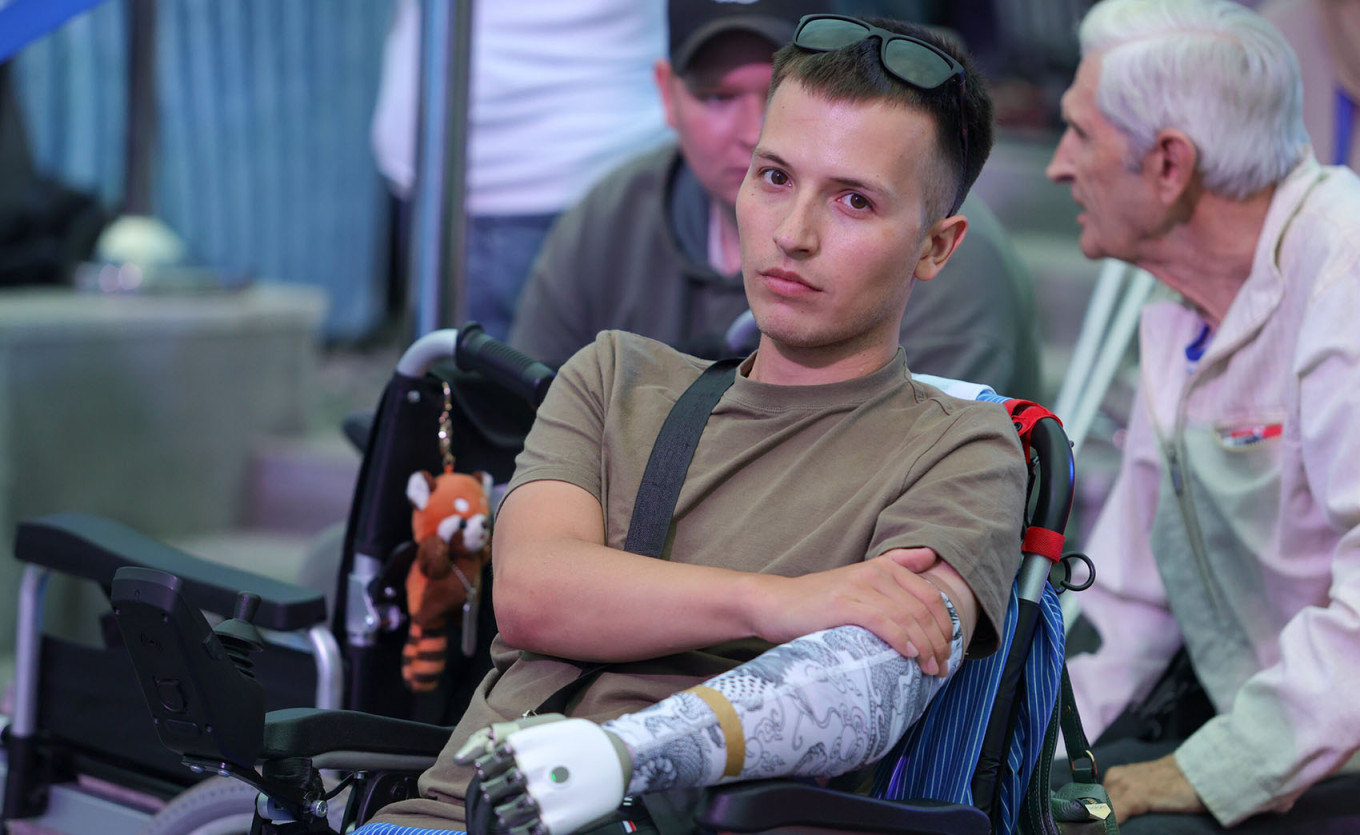
Some 500 people have fallen victim to violent crimes at the hands of soldiers returned from Ukraine, with 378 killed and another 376 surviving with serious injuries, the exiled news outlet Vyorstka reported in February.
The Kremlin is well aware of these dangers. Putin himself has reportedly identified the return of soldiers as a potential risk to social stability, Reuters reported, citing three sources close to the Kremlin.
One source told Reuters that the goal is to avoid a repeat of the social upheaval that followed the Soviet Union’s war in Afghanistan, when veterans returned to find little support and went on to fuel organized crime in the turbulent 1990s.
To minimize public alarm, the Kremlin has instructed pro-government media outlets to play down reports of crimes committed by veterans, the exiled news website Meduza reported.
Putin said this week that more than 700,000 Russian soldiers are currently on the front lines. Sergei Novikov, a senior Kremlin official, said in June that about 137,000 soldiers had already come home.
Yet the exact number of recruited prisoners remains unclear, with estimates ranging from a few thousand to tens of thousands. It is also unknown how many returned from service to civilian life.
Money poses another challenge, as soldiers can earn far more on the battlefield than in civilian jobs. A recruit in Moscow receives about 5.2 million rubles ($62,600) in their first year of service, more than double the city’s average annual salary.
Most of the soldiers who have returned home were “young people” who need jobs, Kremlin official Novikov said, stressing that “they need to return in a way that does not reduce their family’s income.”
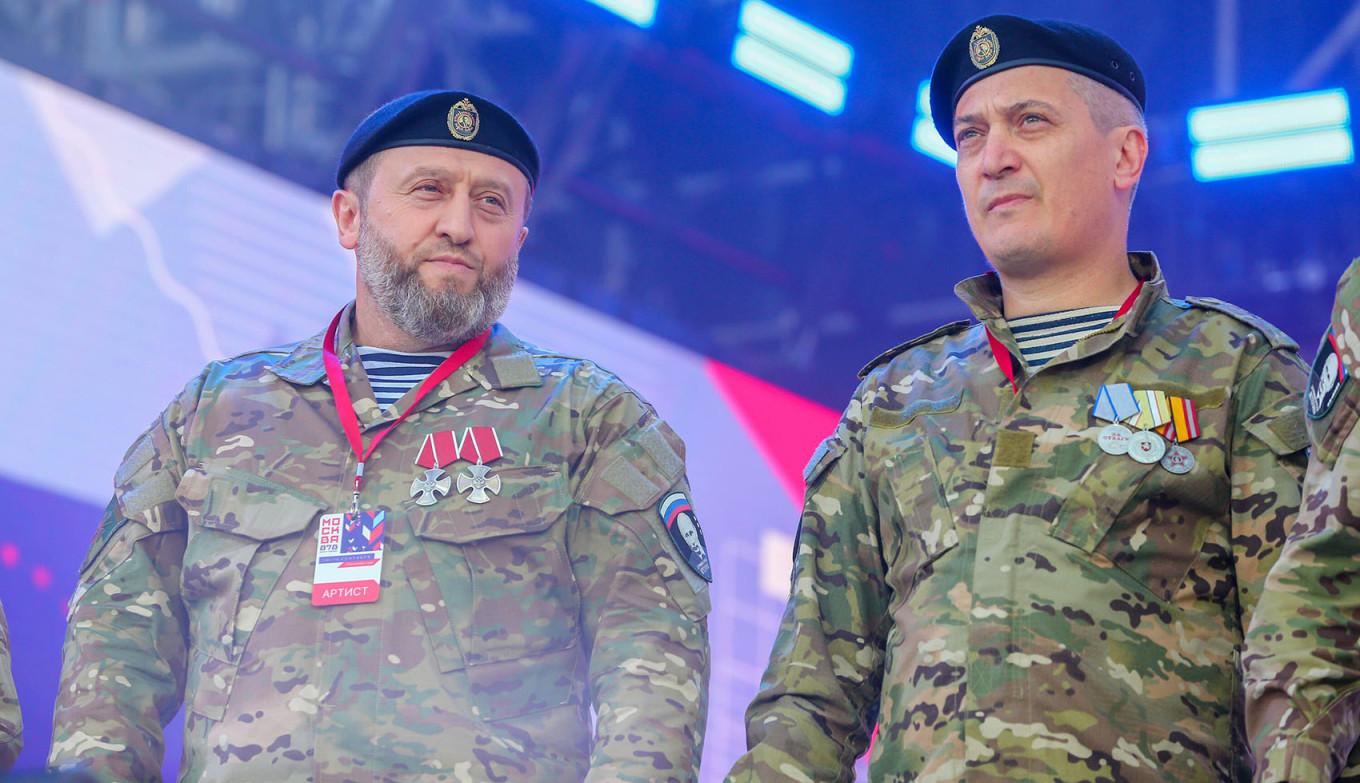
The return of thousands of men from the battlefield could also trigger a mental health crisis in Russia, experts warn.
“The memories of the terrible things that these soldiers would have experienced, including terrible things that they would have done to others,” could trigger coping mechanism like using alcohol or drugs, self-harm and suicide, Mathers said.
Russian soldiers often face brutal treatment from their own comrades on the front lines. Reports describe “pits” at Russian military training grounds where soldiers who break rules or refuse to go to the front line are held and sometimes tortured.
Servicemen who were drafted after the September 2022 mobilization reported such prisons in the Bryansk, Volgograd and Orenburg regions as well as in the occupied Ukrainian regions of Donetsk and Luhansk.
While the Defense Ministry and state-backed initiatives offer rehabilitation programs, even officials admit that soldiers themselves do not always realize they need psychological help.
Nikolai Khlyzov, the human rights commissioner in Siberia’s Zabaikalsky region, said that men returning from combat do not want to attend psychotherapy and urged soldiers to visit psychologists with their families.
“They say: ‘What, am I sick or something? What if they put me on some kind of list — then I could lose my driver’s license and won’t be able to get a job’,” Khlyzov said.
The Russian government has sought to elevate veterans’ public image, casting them as heroes and even encouraging them to run for office.
During this month’s nationwide elections, some 1,600 veterans stood for election across the country, more than 800 of whom won seats at the gubernatorial, regional and local levels.
But critics argue that this official embrace risks normalizing violence.
“The Russian state’s emphasis on the heroism of soldiers and returning war veterans and its plans to turn them into the country’s new elites will reinforce the message that they will face no consequences [for violence],” Mathers said.
“All in all, Russian society will be significantly changed as a result of this war,” she said.
A Message from The Moscow Times:
Dear readers,
We are facing unprecedented challenges. Russia's Prosecutor General's Office has designated The Moscow Times as an "undesirable" organization, criminalizing our work and putting our staff at risk of prosecution. This follows our earlier unjust labeling as a "foreign agent."
These actions are direct attempts to silence independent journalism in Russia. The authorities claim our work "discredits the decisions of the Russian leadership." We see things differently: we strive to provide accurate, unbiased reporting on Russia.
We, the journalists of The Moscow Times, refuse to be silenced. But to continue our work, we need your help.
Your support, no matter how small, makes a world of difference. If you can, please support us monthly starting from just $2. It's quick to set up, and every contribution makes a significant impact.
By supporting The Moscow Times, you're defending open, independent journalism in the face of repression. Thank you for standing with us.
Remind me later.



